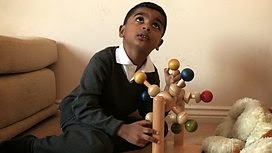Access top-read articles from Clinical Psychological Science—FREE for a limited time!
| | |||||
|
Access, share, and enjoy these top-read Clinical Psychological Science articles today—free through November 30, 2013!
Novel Models for Delivering Mental Health Services and Reducing the Burdens of Mental Illness by Alan E. Kazdin and Sarah M. Rabbitt
The Emerging Field of Human Social Genomics by George M. Slavich and Steven W. Cole
Wandering Minds and Aging Cells by Elissa S. Epel, Eli Puterman, Jue Lin, Elizabeth Blackburn, Alanie Lazaro, and Wendy Berry Mendes
War Zone Stress Interacts With the 5-HTTLPR Polymorphism to Predict the Development of Sustained Attention for Negative Emotion Stimuli in Soldiers Returning From Iraq by Seth G. Disner, Christopher G. Beevers, Han-Joo Lee, Robert E. Ferrell, Ahmad R. Hariri, and Michael J. Telch
Possible Mechanisms Explaining the Association Between Physical Activity and Mental Health: Findings From the 2001 Dutch Health Behaviour in School-Aged Children Survey by Karin Monshouwer, Margreet ten Have, Mireille van Poppel, Han Kemper, and Wilma Vollebergh
Adversity in Early and Midadolescence Is Associated With Elevated Startle Responses to Safety Cues in Late Adolescence by Kate Wolitzky-Taylor, Suzanne Vrshek-Schallhorn, Allison M. Waters, Susan Mineka, Richard E. Zinbarg, Edward M. Ornitz, Bruce Naliboff, and Michelle G. Craske
Unimpaired Attentional Disengagement and Social Orienting in Children With Autism by Jason Fischer, Kami Koldewyn, Yuhong V. Jiang, and Nancy Kanwisher
Visual Context Processing in Schizophrenia by Eunice Yang, Duje Tadin, Davis M. Glasser, Sang Wook Hong, Randolph Blake, and Sohee Park
Nonverbal Displays of Shame Predict Relapse and Declining Health in Recovering Alcoholics by Daniel Randles and Jessica L. Tracy
Key Characteristics of Major Depressive Disorder Occurring in Childhood, Adolescence, Emerging Adulthood, and Adulthood by Paul Rohde, Peter M. Lewinsohn, Daniel N. Klein, John R. Seeley, and Jeff M. Gau
| Call for Papers The editors of Clinical Psychological Science are interested in individual articles as well as series of articles on novel and emerging topics in clinical psychological science. View the Call for Papers here. |


